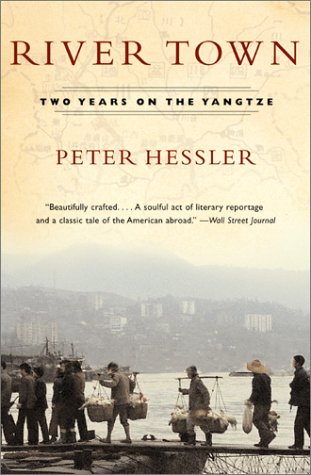The biggest lessons from Hessler are a) don't look in the Kleenex in a country where one in four people die of lung disease and b) it is possible for a cab driver to honk in excess of 500 times during a fifteen minute trip. As an opponent to Hydro-Quebec's developments and a life-long opponent of large dam projects, his section on the antediluvian Yangtze River is fascinating and insightful. This is a place that I plan to visit.
I wanted to share this with you, too, from Bill McKibben's interview in Grist with James Hansen:
BM: There are also a lot of people who say that it doesn't matter what the United States does, because China now has the greatest emissions and its emissions are growing the fastest.
JH: China is taking the right steps to move toward carbon-free energy. They are now number one in the world in production of clean energy technologies: solar power, wind power, and nuclear power. Also, China stands to suffer greatly from global climate change because China has several hundred million people living near sea level and the country is already experiencing large damaging regional climate disasters.
There is no doubt that China will want to move rapidly toward clean carbon-free energies. When the United States realizes that it must impose an internal fee on carbon emissions, it should not be difficult to get China to agree to do the same.
Also, it is important to recognize that the United States is responsible for three times more of the excess (human-made) carbon dioxide in the air today than any other nation, with China being second. [My emphasis.] The much greater responsibility for accumulated human-made emissions is true despite the fact that China's population is three times greater than the United States'. So there is no reason to expect China to act first to reduce emissions.
However, there are advantages in beginning to act rapidly. China is investing heavily in clean energies, and it is likely that they will recognize the merits of imposing an internal carbon price to spur development and implementation of clean energies. The United States risks becoming second-class technologically and economically this century if it does not stop subsidizing dirty technologies and instead move toward progressive policies such as fee and green check, which will stimulate development of clean energies.
Dr. James Hansen is the director of the NASA Goddard Institute for Space Studies and Adjunct Professor at the Columbia University Earth Institute. Bill McKibben is an American environmentalist and writer who frequently writes about global warming and alternative energy and advocates for more localized economies. I wrote my college thesis about him and his family and he serves on the Board of Advisers for Project Laundry List.








